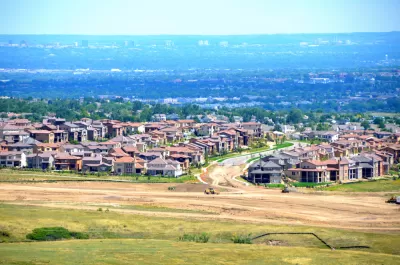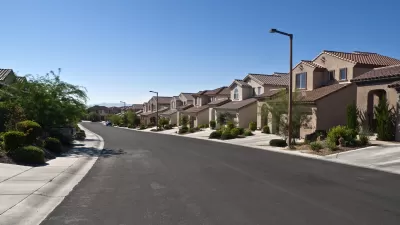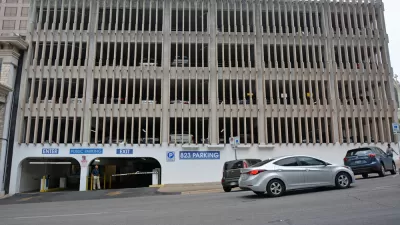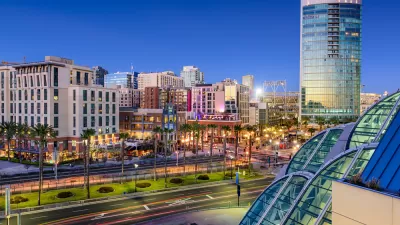The United States will have to make major changes to long-standing land use and transportation paradigms to prevent the worst outcomes of climate change. How to make those changes was the subject of a recent podcast.

The Sustainable City Podcast recently focused on the connections between land use and transportation and how each affects the fight to reduce carbon emissions.
Hosts William Shutkin and Andy Bush spoke with Rushad Nanavatty, managing director and lead of the Rocky Mountain Institute’s Urban Transformation program, and Ben Holland, senior associate and policy liaison at RMI. The entire hour-plus podcast is transcribed at the link below, including discussion of road pricing, electric car technology, and the need for zoning reform, among other topics.. A few highlights:
Nanavatty: "…we’re not going to solve the climate crisis with a silver bullet. It’s a problem that requires the use of silver buckshot. And there are certainly some pieces of buckshot that are bigger and more important than others, but we are going to need to do several things. We’re going to need to stop the bleeding, stop sort of perpetuating these incredibly destructive patterns of urban development by changing our land use practices and our zoning.”
Holland: “So the California Air Resources Board recently put out a goal of reducing VMT by 15 percent. You’re starting to see a number of other climate action plans, including that. Because we’ve got about a little less than two million EVs on the road today. We need 70 million by 2030. I think it’s reasonable to assume that we might fall short of that, excluding any major policies that could shift behavior. So that VMT reduction piece becomes even more important.”
For additional background, see previous Planetizen coverage of the repeated calls by the United Nations for the United States to reverse its course automobile dependency and sprawl.
FULL STORY: Achieving Our Climate Goals: The Land Use-Transportation Nexus

Alabama: Trump Terminates Settlements for Black Communities Harmed By Raw Sewage
Trump deemed the landmark civil rights agreement “illegal DEI and environmental justice policy.”

Planetizen Federal Action Tracker
A weekly monitor of how Trump’s orders and actions are impacting planners and planning in America.

How Atlanta Built 7,000 Housing Units in 3 Years
The city’s comprehensive, neighborhood-focused housing strategy focuses on identifying properties and land that can be repurposed for housing and encouraging development in underserved neighborhoods.

In Both Crashes and Crime, Public Transportation is Far Safer than Driving
Contrary to popular assumptions, public transportation has far lower crash and crime rates than automobile travel. For safer communities, improve and encourage transit travel.

Report: Zoning Reforms Should Complement Nashville’s Ambitious Transit Plan
Without reform, restrictive zoning codes will limit the impact of the city’s planned transit expansion and could exclude some of the residents who depend on transit the most.

Judge Orders Release of Frozen IRA, IIJA Funding
The decision is a victory for environmental groups who charged that freezing funds for critical infrastructure and disaster response programs caused “real and irreparable harm” to communities.
Urban Design for Planners 1: Software Tools
This six-course series explores essential urban design concepts using open source software and equips planners with the tools they need to participate fully in the urban design process.
Planning for Universal Design
Learn the tools for implementing Universal Design in planning regulations.
Jessamine County Fiscal Court
Caltrans
Institute for Housing and Urban Development Studies (IHS)
City of Grandview
Harvard GSD Executive Education
Toledo-Lucas County Plan Commissions
Salt Lake City
NYU Wagner Graduate School of Public Service





























